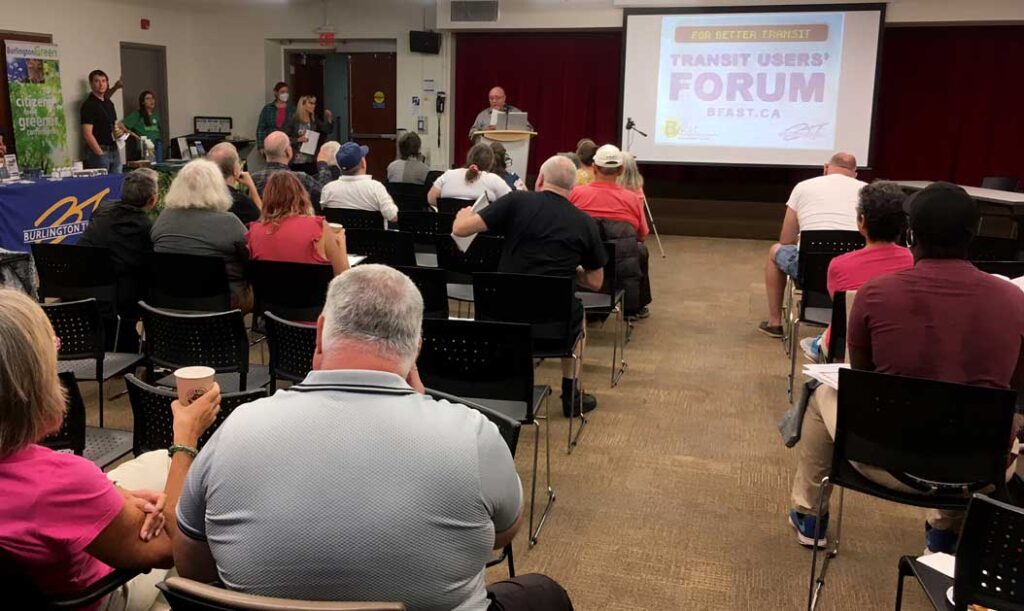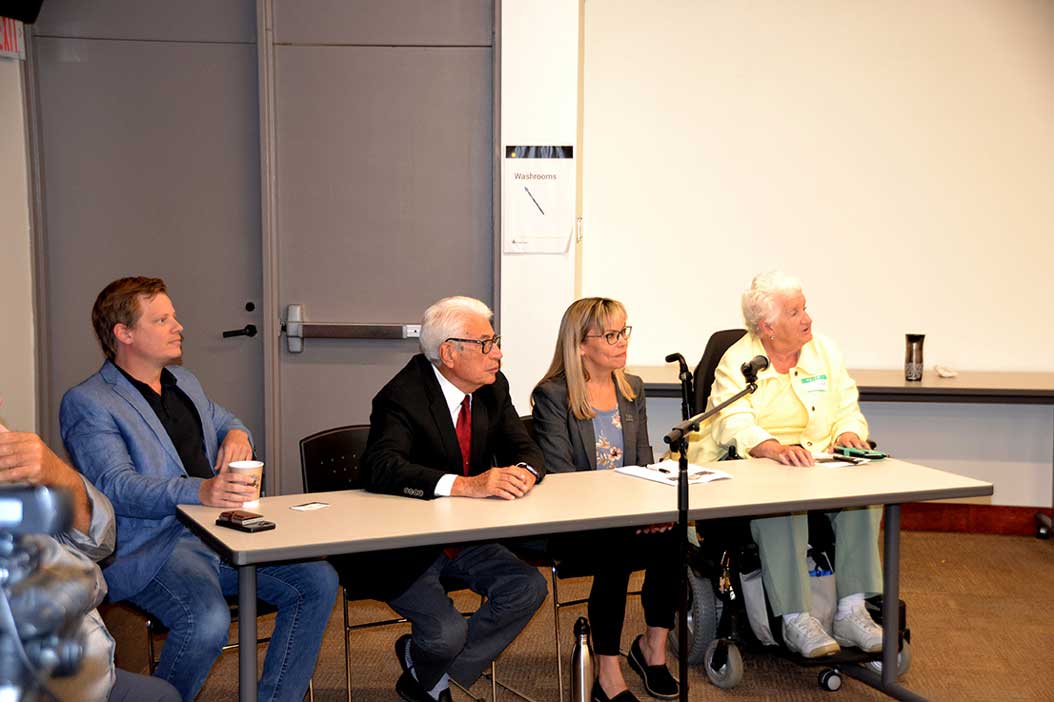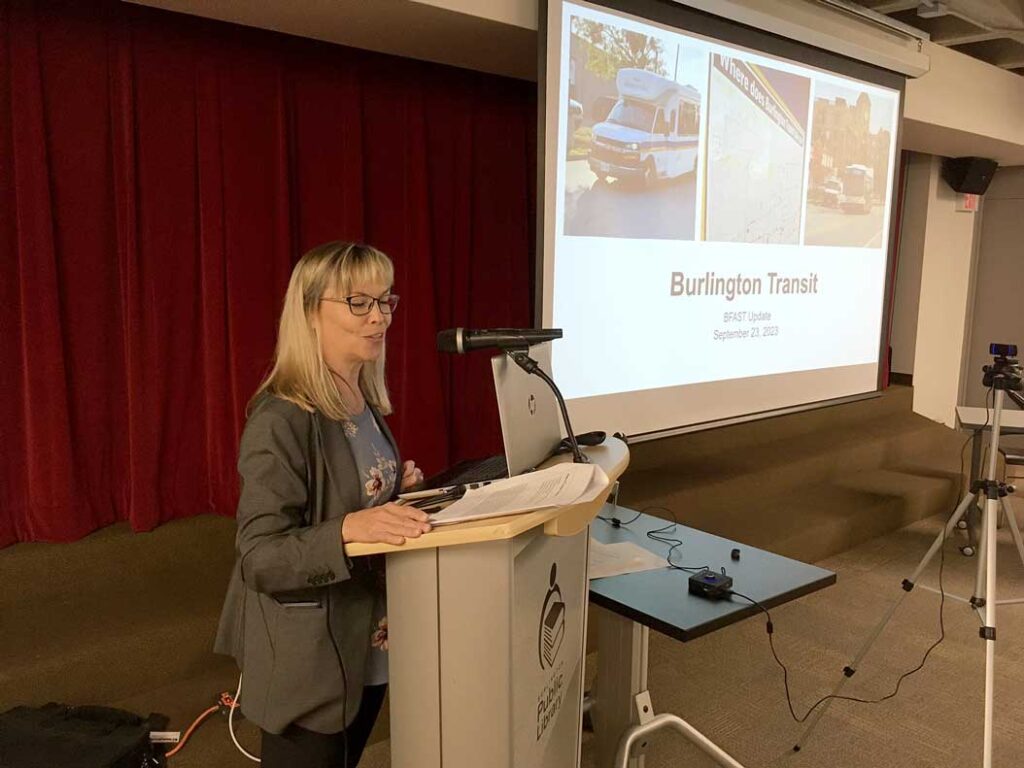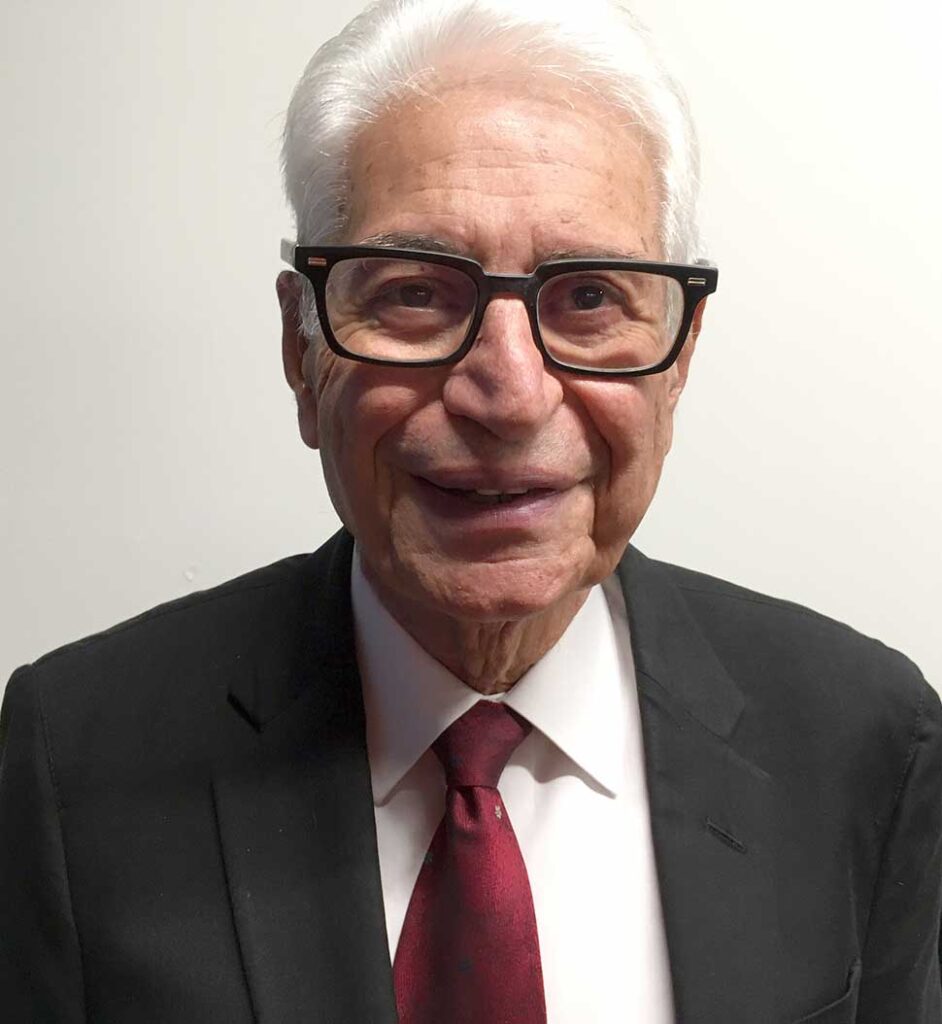By Burlington for Accessible Sustainable Transit
On Saturday, Sept. 23, Burlington’s annual Transit Users’ Forum returned after a pandemic pause, with presentations on the state of transit in Burlington and the opportunity for riders and others to ask questions or voice concerns to officials from Burlington Transit.
With about 60 people attending the event in person at the Burlington Public Library’s Central branch, and some watching via Zoom, the forum included a re-cap of Burlington Transit operations and plans by Transit Director Catherine Baldelli; an address from Councillor Rory Nisan, Deputy Mayor for the Environment; and a keynote presentation by acclaimed economist from McMaster University, Dr. Atif Kubursi.

speakers. Photo: BFAST.
“Burlington’s Transit Users’ Forum is unique in Canada,” said Doug Brown, chair of Burlington for Accessible Sustainable Transit (BFAST), the lead organizer of the forum. “There is no event like it anywhere else. It speaks to Burlington Transit’s commitment to engage with its riders that our transit agency supports and participates in this exercise, which is organized by citizen volunteers.”
Baldelli reminded the audience that Burlington Transit is in the midst of a five-year strategic plan that points the way to the electrification of the fleet. But first, the system needed to be upgraded to accommodate the needs of the public. Reliability, connectivity, frequency, and switching to more of a grid-like route system have all been addressed. Numerous outreach and public sessions have been instituted to keep the public informed.
“Pre-pandemic, things were looking great for the transit system, then COVID hit,” Baldelli said. “This year we are on target to match earlier ridership levels.”
Professor Kubursi’s analysis focused on “the total benefits of free transit.” Benefits touch on economics, equality, addressing climate change, and social equity. Of particular note, Kubursi zeroed in on free transit, something that Burlington has offered to seniors and at specific times to youth under 19 years old.
Kubursi stated, “Free transit can be a powerful tool for promoting social equity. It eliminates transportation costs, making it more accessible to low-income individuals and families. This means that everyone, regardless of their economic status, has equal access to essential services, job opportunities, and educational institutions, ultimately reducing disparities in society.”
Free transit also invites riders to explore more of their city and the money saved on fares will, in most cases, be spent on local goods and amenities. The challenge is how to pay for free transit. “Cities must find alternative funding sources to cover the costs previously generated from ticket sales and fares,” Kubusi noted. “The success of free transit relies on changing the behaviour of commuters accustomed to using personal vehicles. Ultimately, free transit has the power to create more sustainable, equitable, and vibrant urban environments for residents and future generations.”
The forum concluded with a question and answer session featuring Baldelli, Nisan, Kubursi, and Glenna Cranston, a member of BFAST. Questions from the audience included concerns about frequency, connections, why some buses get delayed or taken out of service suddenly and how riders can learn of interruptions, and the policy on dogs on buses (service and support dogs are allowed).
BFAST wishes to thank those organizations that supported the forum and the group looks forward to next year’s forum while it advocates for an even better transit system in Burlington.






